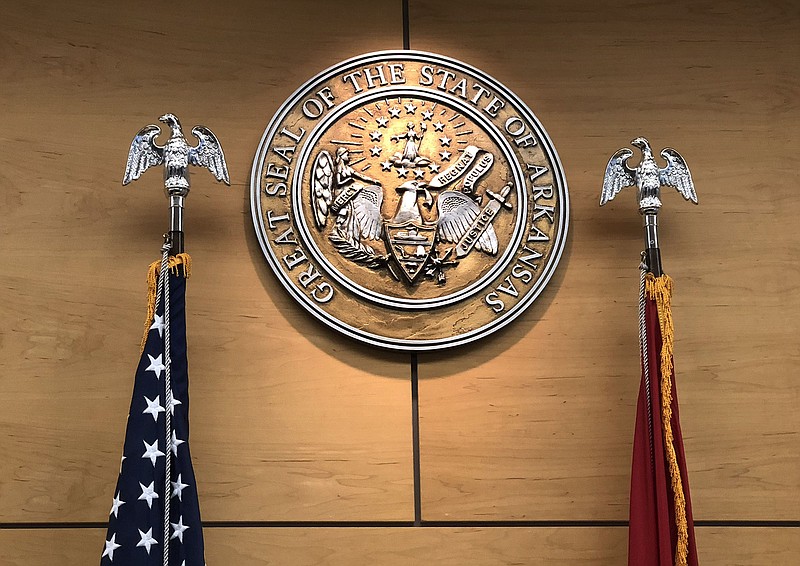The commission that sets the pay for Arkansas' elected officials moved Wednesday to increase pay for judges by 3% for fiscal 2022.
The Independent Citizens Commission's vote was unanimous and came two weeks after judicial leadership made the request at the panel's previous meeting.
The commission will formalize its recommendation with a resolution at a later date, then send it to the state auditor for final approval.
There are seven justices on the Arkansas Supreme Court, 12 judges on the Arkansas Court of Appeals, 126 circuit judges and 109 district court judges.
Across the board, the cost of the judicial salary increases will total nearly $1.27 million.
The 3% increase brings the salary of the chief justice of the Arkansas Supreme Court to $205,369.64, up from $199,388.
Associate justices on the state Supreme Court will make $190,126.08, up from $184,588.43.
Judges on the state Court of Appeals will make $184,497.03, and the chief judge on that court will be paid $187,311.57.
Circuit court judges will make $180,129.37, and state district court judges will be paid $157,613.20.
[PAY RAISES: Comparisons not appearing above? Click here » arkansasonline.com/99raises/]
Pay for prosecuting attorneys will increase as well, because the commission previously decided to set the salaries of Division A prosecuting attorneys at 95% of the salaries of Arkansas circuit judges. The salaries of Division B prosecuting attorneys were set at 85% of Division A salaries.
Bob McMahan, the state prosecutor coordinator, requested in an Aug. 19 letter to the commission that "any adjustments continue to maintain these percentages."
Prosecuting attorneys in Division A will make $171,122.90, and those in Division B will be paid $145,454.47.
There are 25 Division A prosecuting attorneys and three Division B prosecuting attorneys. The cost of increasing their salaries totals $137,313.93.
The commission's vote in favor of the pay increase was unanimous, though Chairman Chuck Banks said he was troubled by it.
Banks said he was appreciative of the judges' work and believed they were deserving of the raise, but the commission shouldn't necessarily increase the salaries because other state employees did.
He said he wanted to "be sure that we're not getting totally focused on one half of the considerations and what all the other people are getting or not getting that are state employees."
Commissioner Jonathan Rogers said the panel needed to be responsible with what it does with state funds, but "3% to me in my opinion is very reasonable for the year that we've had."
"When you talk about the amount of money that is, the position they're in in their degrees, what they've gone to school to do, how they represent our state ...it's an earned increase and probably could be argued that it should be more than that," he said.
Commissioner Annabelle Imber Tuck, a former state Supreme Court justice, said she was in favor of the 3% increase, in part due to inflation.
"The cost of living is more expensive right now and I can't ignore that," she said.
She also referenced how Arkansas stacks up compared with judicial salaries in other states, according to a survey that the National Center for State Courts published in July.
The survey ranked Arkansas as 27th for Supreme Court salaries, 21st for appellate court salaries and 21st for circuit court salaries. When adjusted for cost of living, the state's circuit court judge salaries rank fourth in the nation.
Five commissioners were present at Wednesday's meeting. Commissioner Phillip Fletcher was absent, and Nathan Evers resigned from the panel because he was appointed to the board of trustees of Southern Arkansas University, Banks said.
